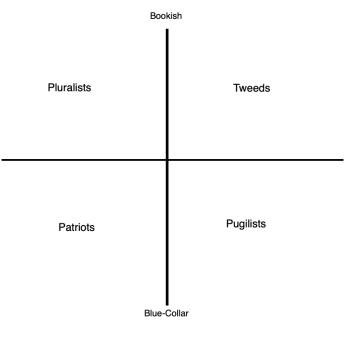
There’s been plenty of commentary written about how Americans are lonely—how so many of us lack friends, communities, or connections beyond the most superficial level. And I find it hard to think of anything that better captures this reality than the rise of Twitch.
In a nutshell, Twitch is an online YouTube-style site where individuals can stream themselves playing video games in real time (typically also with a webcam pointed at themselves). The concept sounds insane—who wants to watch other people play games rather than do it themselves?—but the metrics tell another story: the site claims over 100 million monthly users.
Some of this I understand. I may be alone in this, but I do think there’s something entertaining about watching video games played at a very high skill level (the professional League of Legends scene features livestreamed games accompanied by running sportscaster-style commentary). But I’m always acutely aware that these games are mass-entertainment products, like real sporting events or TV shows. I’ll never be on a stage somewhere playing games for an audience, nor do I have any desire to do so.
Not everyone shares that sentiment, though. In one of the bleakest articles I’ve read in some time, Patricia Hernandez chronicles the sad lives of those Twitch streamers who go years without ever acquiring an audience. In an attempt to get noticed, these individuals will broadcast for hours and hours and hours in the hopes of capturing someone’s attention. But many of them are, in a very real sense, shouting into the void.
To be sure, learning to do anything well requires a large investment of time up front—and often results in plenty of failures. But in the case of Twitch, there’s something deeply depressing about the sheer meaninglessness of the whole thing. An immense amount of time and energy is being poured into this platform, and nothing new is being brought into being—no new games, no new art, no new insights or ideas, nor anything else. The whole effort is oriented toward one end: the privilege of performing for a faceless mass of cyber-denizens. A dubious achievement, to say the least.
One can obviously argue that “it’s just entertainment like anything else!” Well, yes. Lots of things can be labeled “entertainment”—cocaine, pornography, Batman v Superman, and so forth. I submit that this is a particularly unsalutary form of entertainment. I’m generally inclined toward charitable takes on pop culture, but I can see little actual value in watching strangers play video games for hours on end. Even comparatively flimsy virtues—for instance, the loyalty and camaraderie fostered by allegiance to a distinct team—are lacking in a space that’s mostly comprised of isolated individuals watching other isolated individuals.
A caveat: perhaps there’s a substantial pool of Twitch streamers who keep up a running commentary on the themes of the games they’re playing, or highlight design decisions that future industry professionals might want to know about. If so, I think there’s potential value in that. But I doubt there’s much of this.
In fact, I’m inclined to say that the Twitch phenomenon goes beyond pointless to genuinely sad. It reminds me of an old quote from C. S. Lewis in Mere Christianity:
You can get a large audience together for a strip-tease act—that is, to watch a girl undress on the stage. Now suppose you came to a country where you could fill a theatre by simply bringing a covered plate on to the stage and then slowly lifting the cover so as to let every one see, just before the lights went out, that it contained a mutton chop or a bit of bacon, would you not think that in that country something had gone wrong with the appetite for food?
Lewis raises this point in the course of arguing that most of what we understand as vice is the distortion of desire from its proper ends toward improper ones. Something that strikes us as altogether unsurprising—the degradation of sexual desire—would become exceedingly surprising if a different desire (in this case, physical hunger) was substituted for the erotic impulse. He contends that patterns of decadence within a society reflect ways in which that society has institutionalized its disordered desires.
And his words here strike me as pointedly capturing the ethos of Twitch: the longing for genuine goods—in this case, the twin desires for human contact and for true adventure—is sublimated into a voyeuristic experience of unfulfilled yearning. And it is strange that so many people are seeking to satisfy legitimate impulses in this forum.
Forming community is certainly wonderful. But under Twitch’s conditions, all social interaction is mediated through anonymity—with ugly consequences, as anyone who’s ever glanced at a popular Twitch “chat” (the primary means by which audiences interact with streamers) well knows. If the stream is popular enough, the chat instantly becomes a never-ending torrent of profanity, racial slurs, desperate pleas to have one’s own channel noticed, and crude images of swastikas. If this is a “community,” it’s a wretched place indeed. (And that’s saying nothing of the reduction of adventure, mystery, and achievement to glowing pixels on a screen—a tragedy that speaks for itself.)
Yet perhaps, under the cultural conditions of late modernity, the dominance of Twitch makes a twisted kind of sense. When reality itself becomes totally drained of meaning, wonder, and purpose, simulations—and in particular, simulations where one wields real control over the fabric of existence—become deeply attractive.
But it’s extraordinarily depressing nevertheless.












